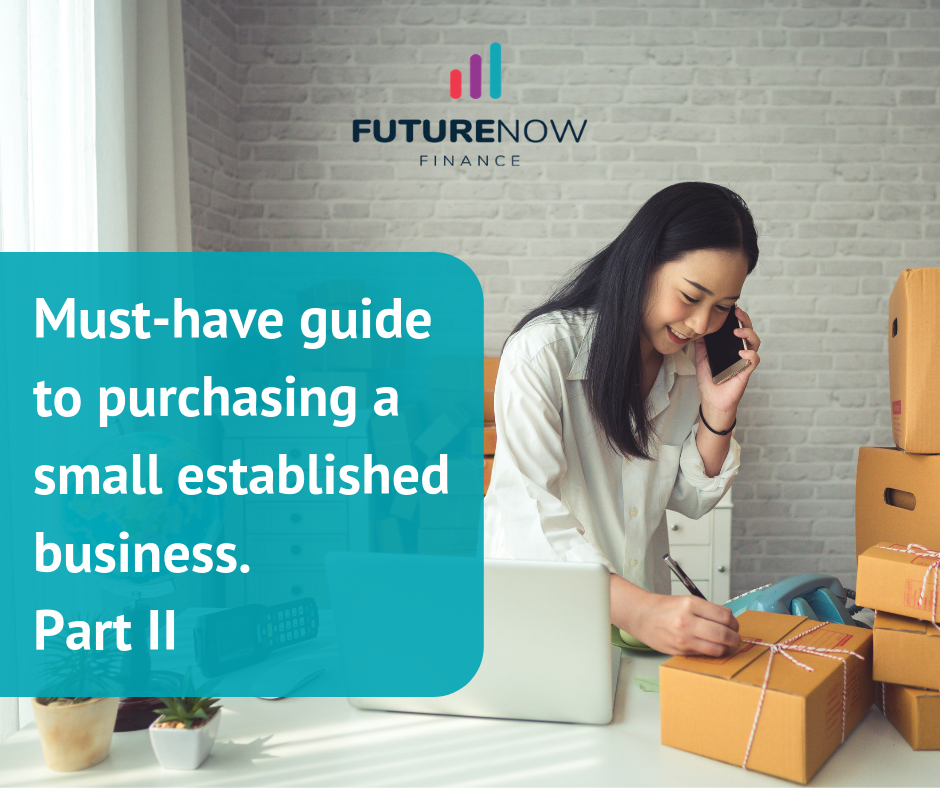In part two of this article, we will be discussing how much you really need to buy a business; who do you need as part of your professional team and why they are important.
If you missed the article in part one, you can read it here.
So, how much is actually sufficient to purchase a small established business and how do you determine your budget?
According to Benchmark Business Australia, there are a few points to consider such as the purchase price; SAV; stamp duty; legal and accountant fees; working capital; bonds and your transition money.
All of these factors will help you work out how much you will eventually need as there isn’t an exact figure when it comes to purchasing a business. This very much depends on the type of business you will be purchasing too.
1. The purchase price – make sure you know the full and final price of the business and find out if there will be any other hidden costs that you will be responsible for. To further help you in this process and ensure you are paying a fair price, always seek advice from a solicitor, accountant or business advisor. You may also negotiate the amount with the buyer or financier before making payment. Avoid spending money on legal and accountant fees before calculating how much you will need to pay for the established business and making sure that you can actually afford it.
2. SAV (stock at valuation) – it’s always important to check what the cost price of the stock is; when it is due to be sold for and then potentially negotiating a price with the vendor. You do not want to be entering a contract in buying a business to only find out later that the purchased stock is no longer sellable.
3. Stamp duty – When you plan to purchase a business in Australia, you will need to prepare to pay the government stamp duty at settlement. Generally, around 3.5% to 4.5% of your total purchased business price. You can also ask your solicitor to calculate the exact amount and include this in the contract of sale.
4. Legal & accountant fees – it’s important you engage with a trusted solicitor and accountant to help you in the purchase process. Ideally one that is familiar and involved in commercial business sales. The accountant you engaged with is an important part of the money management of your company as you will know that your taxes are paid properly and on time.
5. Working capital – ensure that you calculate how much you need for working capital purposes. This can be done by calculating the operating cycle. Any shortfalls can be funded with borrowed money to smooth out the peaks and troughs of cashflow. This is important for your business as it helps to cover your operational expenses even if your business isn’t making enough working capital just yet.
6. Bonds – in the event you are going to be leasing the business premise, you will be asked to provide a bank guarantee for the bond. The duration period is usually around 3 months in advance. The exact amount will be negotiated as part of the lease contract that you sign with the landlord.
7. Your transition money – doing your homework on what you need to know helps in the long run. This includes finding out if you will need to travel and how frequent that will take place, accommodation, transport fees, and more. These estimated charges will help you determine your budget when buying a business. It’s essential for you to know how much is required for you, so you can cover your personal expenses while you undergo the transition of a new business.
Who do you need as part of your professional team?
Assembling a team of skilled advisers can help guide you in the purchase process and assist you in decisions you need to make. Previously, in part one of this article, we mentioned how important it was to perform due diligence. This can be done with the help of your trusted lawyer, accountant, or business adviser as part of your professional team.
According to Business Queensland, your professional team can help you in the following:
– identify and reach your business goals
– negotiate contracts and other complex documents
– understand and comply with rules and regulations
– minimise risk in your business
The due diligence process is significant as this ensures that you are getting good value when purchasing an established business.
At FutureNow Finance, we look forward to working with you to structure a finance solution to purchase an established business and look after your ongoing finance requirements. Call us on 1300 013 730 or email us at hello@futurenowfinance.com.au

